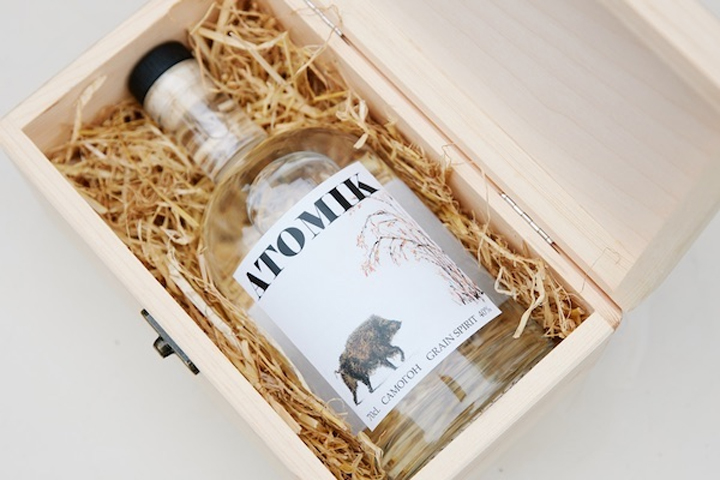Ukrainian authorities have seized the very first shipment of alcohol distilled in the shadow of the Chernobyl nuclear plant, in a move that has left the spirit-makers scrambling to deal with the fallout.

The alcohol was made from apples grown outside the Chernobyl Exclusion Zone, but it’s supposedly been scrubbed of harmful radioactive materials. It’s also probably a tasty drink, if it’s anything like the Atomik vodka that the same company produced back in 2019.
Officials intercepted a U.K.-bound delivery truck loaded with 1,500 bottles of the Chernobyl Spirit Company’s Atomik apple spirit in March, according to a new update on the company’s website. The bottles remain in custody and the distillery’s operations are on pause until the issue can be resolved.
Though some might recoil at the idea of drinking hooch with a half-life, there is no indication that the alcohol was confiscated for that reason.
The alcohol was allegedly seized because of an excise stamp issue, according to U.K.-based professor Jim Smith, who is one of the scientists behind the Chernobyl Spirit Company.

Get breaking National news
“They are accusing us of using forged Ukrainian excise stamps, but this doesn’t make sense since the bottles are for the U.K. market and are clearly labelled with valid UK excise stamps,” Smith said in a statement on the company’s website.
Ukraine introduced a new excise stamp system last year to combat counterfeit alcohol production in the country.
Smith and his Ukraine-based partners distilled their first bottle of Atomik vodka in 2019, using radioactive grain grown from inside the Chernobyl Exclusion Zone. They’ve since moved on to producing a fruity spirit made from apples grown by locals outside the exclusion zone, using a similar distilling process to ensure that the booze is not radioactive.
Smith helped found the company as part of a larger scientific and social initiative to see what kinds of products could be produced around Chernobyl, which remains a largely blighted patch of planet Earth. At least 75 per cent of the company’s profits will go back into the community and wildlife restoration efforts, its website says.

The infamous 1986 Chernobyl disaster killed more than 100 people, poisoned thousands more and caused catastrophic environmental damage to the area around the ruined nuclear reactor. It was the worst nuclear-related accident in human history, and much of the area around it remains off-limits to humans.
Dr. Gennady Laptev, one of Smith’s partners who worked at Chernobyl in the first weeks of the accident, said he hopes the Ukrainian government will allow the Chernobyl Spirit Company to move forward with its sales.
“We hope this issue can be resolved so that we can continue our work trying to help people affected by the devastating social and economic impacts Chernobyl had on communities,” he said in a statement.
The group’s lawyer, Elina Smirnova, accused Ukrainian authorities of violating the law by targeting a “foreign company which has tried to establish an ethical ‘white’ business to … help Ukraine.”
Ukrainian prosecutors have not commented on the case, and it’s unclear when the alcohol will be allowed to flow again.








Comments
Want to discuss? Please read our Commenting Policy first.